Yuriko Hanabusa
Nascimento : 1900-03-07, Kure, Hiroshima Prefecture, Japan
Morte : 1970-02-07

The 22nd film in the Shacho comedy series.
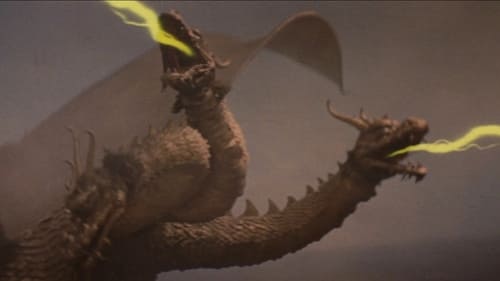
Mother Shindo
Uma profetisa de Vênus anuncia desastres catastróficos! Godzilla, Mothra e Rodan reaparecem no Japão, causando devastação! Um meteoro gigante colide nas montanhas e o dragão espacial cuspidor de fogo de três cabeças Rei Ghidorah emerge! Conforme as profecias da venusiana se tornam realidade, assassinos de um pequeno reino asiático a caçam, enquanto os monstros da Terra devem decidir se irão resolver suas diferenças mesquinhas e unir forças contra o inimigo extraterrestre!

Shûe Matsubayashi movie
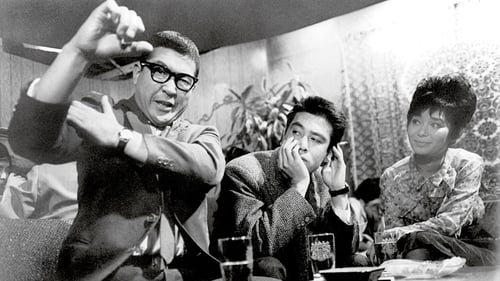
A salaryman's drunken ravings in public attract the attention of journalists who coerce him into telling them his life's story.

Yae Funakoshi
Nikkatsu finally responds to Suzuki's growing discontentment by giving him a bigger budget and a better script. This episodic collection of "real coast guard action stories" was the perfect vehicle for Koji Wada. Whatever negative press he had received for Tokyo Knights was quickly forgotten. He became the new "teen star." And Suzuki: "the director to watch."

Manao Horiuchi movie
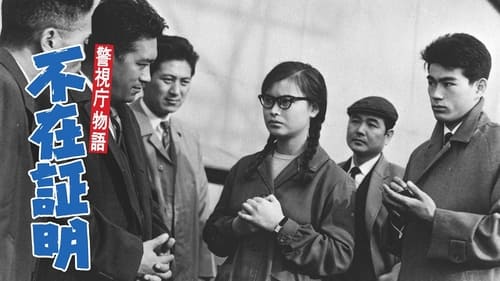
The First Investigation Department is investigating a murder case that took place at a government agency, with particular attention to finding an alibi for the suspects. A security guard was killed in the building, the safe was broken into, but nothing was stolen. The three suspects have alibis, but who then killed the guard and broke into the safe? The 15th work from the popular series "Keishicho Monogatari", which documents the activities of the First Investigation Division of the Capital Police Department. Sonny Chiba's first film role as one of the seven detectives.
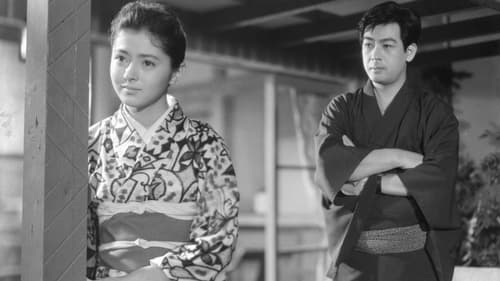
A mother and her daughter who run a quiet mountain hotel, and guests who visit the hotel. A girl who does not know what a broken heart is, the attractive joy of first love, and separation is like parting with life. The mother-daughter duet with Isuzu Yamada attracted a lot of attention at that time. Haruko Wanibuchi, demonstrated rare attractiveness and pure charm by playing a heroine living in a beautiful and pure first love.

Fifth entry in the Company President Series.

Kiyo
Yoshiko finds new life and love interests when she takes a new job as an office worker.
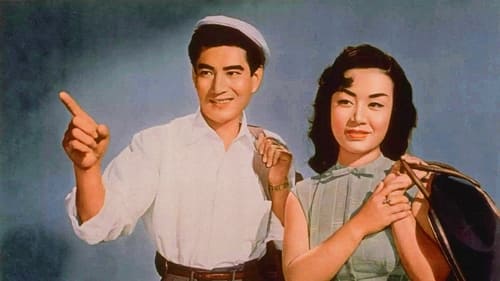
A friendly rivalry turns into romance for Yukiko, an elite female detective, and a handsome private eye named Mitamura while both are investigating the missing person's case from a wealthy family.

Kiyo
1958 Shochiku adaptation of Natsume's novel.

The love between young college students Toki and the handsome Takaga is tested when Takaya's parents, who despise Toki's family's geisha house business, intervenes in their relationship.

The fourth entry in the Company President Series

Hamako Okada
On Wings of Love is a 1957 Japanese romantic musical film directed by Toshio Sugie. It was Toho's highest-grossing film of the year and the first film released in Tohoscope.

A young man and woman are determined to marry despite opposition from her parents.

Japanese romance film.

The president learns that the company's biggest stockholder is also a friend of his singing teacher and spies on his movements.

A chance ride in a car leads to an unforgettable relationship. A misunderstanding leads to more misunderstanding... Love and thrills in this coming-of-age romance film.

One of the earliest Japanese cop films following a mysterious killing on the last train to Mitaka, Tokyo.

Japanese youth film.

A wandering Jirocho stumbles upon his wife's possible murder and has other adventures while on the run.

Otoku Kawanabe
Story about a poor Japanese woman living near an American army base who resorts to prostitution.

Ume Sakai (uncredited)
A story of unhappy youths and the perils of lack of sex education.

Ginko, a poor cobbler's daughter, becomes a geisha to support her family. She passes from one geisha house to the next, trying to find love and hope in the process. No matter how hard she tries, she just can't escape her sad fate.

Kazuo Miyagawa’s prizewinning black-and-white cinematography draws out the moral shadings of Nobel laureate Yasunari Kawabata’s 1952 novel Thousand Cranes, a quietly devastating story of a young man, orphaned during the war, who stumbles into a passionate yet tragic relationship with his late father’s mistress and her daughter.

Shizuko, Kyoko's mother
Parent apathy to sexual education leads to various troubles for the young cast.
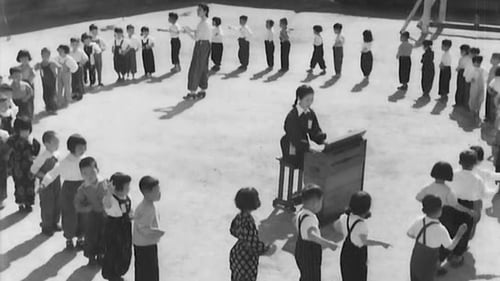
Oine
Shows the devastation caused by the atomic bomb, and by use of a fictional storyline, portrays the struggle of the ordinary Japanese people in dealing with the aftermath.

Natsuno Sôma

Story of a Beloved Wife is an autobiographical work based on Shindo's first marriage. Jūkichi Uno stars as a struggling screenwriter, and Nobuko Otowa stars as the wife who supports him through his early struggles.

___________

Kiritsubo's mother
Genji, the illegitimate offspring of a Japanese potentate, goes by the philosophy of "love 'em and leave 'em" as a matter of course. Only when his heart is broken by Awaji does Genji realizes how much pain he himself has caused.

This film is strongly anti-war film. The film is based on the collection of writings by Japanese student soldiers who died during World War II. The film is located to Burma. It shows the everyday problems of soldiers in contrast of their ideas and the cynicism of their commanders. Soldiers are also victims of military bullying by their commanders.

Kita's mother
An attempt is made to suppress a journalist's investigation of collusion between a rural police chief and the local gangster bosses.

In a village subsisting on it herring fishery, a one-eyed criminal named Jakoman terrorizes the inhabitants. One of them, the son of the head of one of the fish companies by the name of Tetsu, decides to overthrow Jakoman and his cohorts.

Akiko Tanai
Slice of life film centered around a couple of years in the life of a rural high school girl.

After learning that he has accidentally killed a man in a fight, Unokichi must look after the man's pregnant widow.

Based on the comic by Ichio Matsushita

Young men endure challenging flight training in the Yokaren, a program feeding new pilots into the Army and Navy. By the time of the filming, the pressure of the war had led the government to shorten the training and expand the age range of the recruits. Yokaren was highly selective, and thus an object of great fascination and desire for boys and young men. In this Navy–sponsored film, Setsuko Hara plays the daughter of a family that often entertains recruits on their days off—a surrogate sister to many trainees. Her fragile younger brother aspires to join the program, but is rejected. With perseverance and much support from Hara and their mother, he surmounts his weaknesses and becomes a flier.

Kurikawa's mother
A 1943 film.

Hanako's mother
Hanakosan (1943, TOHO, MAKINO Masahiro), a thoroughly light and joyful musical comedy, influenced by Busby Berkeley films, against the national policy under the wartime, was made into a film from comic serials by SUGIURA Yukio published in a magazine.

Set in Qingdao, China, a Japanese company locates an office there and begins work and cooperation with a local Chinese company for business. Many Japanese engineers also move to China, with their families, for the company in order to construct a canal. There are young Chinese resisting the Japanese in this area.

Take
What is marriage? Young couple in match-making wanted to know before they decide. They visited married couples of sisters and brothers. Love comedy in 1942.

Sanae's mother
A "slice-of life" film about a group of high school girls in 1940s Japan.

Japanese war-era film

Okumura Ioko story directed by Shiro Toyoda

Twenty-year-old Yoshiko (Setsuko Hara) and her younger sister Asako (Yōko Yaguchi) struggle to accept changes in their home during the preparations of their widowed father's wedding to his chosen bride, Maki Tsuneko (Sadako Sawamura), who's anxious about her conduct as the bride.

Part two of two.

Utako Nakajima
Japanese film based on the life of writer Ichiyo Higuchi (1872-1896).

This film attempts to reconstruct the tension of the Battle of Shanghai through an episode in an understated way, introducting its story in a documentary mode. In the film story, Japan's marine regiment protects Japanese residents and Chinese refugees-women and young children-from rampant street fighting, Shanhai Rikusentai unsparingly uses its first eight minutes for an official-mannered self-justification of the war. From the viewpoint of explaining Japan's military operation,the narration refers to the city s spatial division in sync with maps on screen.

An irreverent take on a medieval Noh drama, Hokaibo sees Enoken play the titular monk whose lusts drive him to murder.

Japanese adaptation of LES MISERABLES. The last film of director Itami took inspiration from Les Miserables. Transpiring during the Southwestern War of 1877 in Japan, which was the last civil war in the country, a criminal escapes prison only to be found by a monk. The criminal decides to turn a new leaf based on their conversation and goes on to become a town's mayor. He hears news of a mistaken arrest and identity. The revelation of truth is the start of a series of miseries.

Keiko's mother Hatsu
Based on an original story by Yojiro Ishizaka, this well-made drama is set in a Christian school in a beautiful northern harbor town. Teacher Masaki (Obinata) speaks up for Keiko, one of the girls at the school, every time she causes problems because he feels sorry for her, a child born out of wedlock. Sumi (Natsukawa), one of Masaki’s colleagues and who is secretly in love with him, strongly disagrees with him about Keiko. Then Sumi hears a rumor that Keiko is pregnant with Masaki's child . . . .
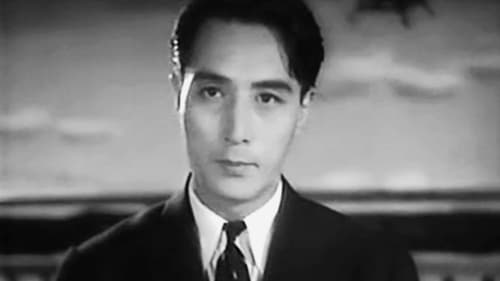
Shintaro's mother
Part 1 of a 2-part romance based on a story by noted author Kikuchi Kan. The central character here is Toyomi (played by Takako IRIE, star of Mizoguchi’s "Water Magician), a rich young woman in love with Shintaro (Minoru TAKADA), a rich young man. Unfortunately, Shintaro’s father is in the process of arranging a marriage for him with Yurie (Chieko TAKEHISA), the scion of an even wealthier family. In order to avoid this, the two young lovers flee to Tokyo to live together. When Shintaro comes back to proclaim his intent to marry Toyomi, his father browbeats him into attending the long-arranged marriage meeting with Yurie. While Shintaro is back home, Toyomi goes on a vacation trip with her closest chum, Michiko (Yumeko AIZOME). At a class reunion, Toyomi is to distressed (at not having heard from Shintaro for so long), she doesn’t go out on the town with her classmates. Michiko, however, runs into Shintaro and Yurie (also out on the town), and pulling him aside, demands an explanation.

Gorô's Mother
The study of a one-year marriage that begins to crumble. A married man is torn between the love of his wife, and the attraction to a cousin of his wife.

The prewar film Haha no kyoku (Mother's Melody, 1937) is known for its place in Japanese film history as one of the top three melodramas as well as for its authorship: Yamamoto Satsuo is an auteur not usually associated with filming melodramas. Yamamoto made the film right after he moved, along with his mentor Naruse Mikio, to the Toho film company. A number of subsequent postwar mother's films adopted some of its essences, making it a genre-defining moment in Japanese cinema. This great melodrama is atypical of Yamamoto's output, much of which deals with political corruption and inequities within social institutions and offers a strong anti-establishment appeal.

Oiku, the Maid
At the invitation of the Japanese Ministry of Education, the former “mountain filmer” Fanck directed this “cultural feature film” with Japanese actors in Japan, making this the first, German-Japanese co-production. The young Japanese man Teruo gets caught up in a conflict between tradition and modernism, when he returns to Japan from Germany after having spent a number of years there studying. Now, he is supposed to marry Mitsuko, the daughter of his adoptive father, to whom Teruo has long been promised. But Teruo, who has gotten to know the freedoms of the western world, would rather marry the woman he loves and behaves brusquely to Mitsuko.

Hikoroku Laughs a lot

Ino tries to control Mon’s every move, but she becomes a fallen woman, having an affair with a student, Obata whereas her sister San remains a “good girl.” The mother is very supportive of her daughters, but, the father, Akaza, who is the stonecutter foreman on the damn, lacks control of his family.

Sensei Kushami's wife
1936 P.C.L. adaptation of Natsume's novel.
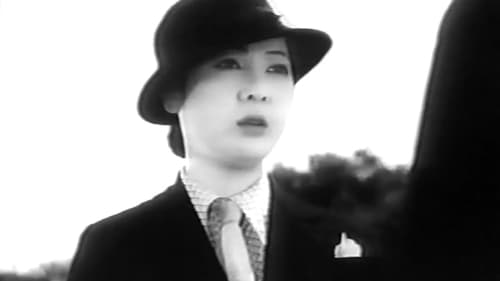
Oyuki
Kimiko, a Tokyo white-collar working girl, lives with her serious, intellectual, haiku-writing mother. Kimiko seeks to marry her boyfriend but needs her absent father to act as the go-between and negotiate the marriage. Kimiko travels and finds her father living with a second family.

Miyo
Adaptation of Fumiko Hayashi's novel.

Kiyo
1935 P.C.L. adaptation of Natsume's novel.

Directed by Kenji Mizoguchi.

Peer's daughter
A small town boy dreams of being a famous fiddler; Meanwhile, two convicts escape from prison and hide in the woods.






































